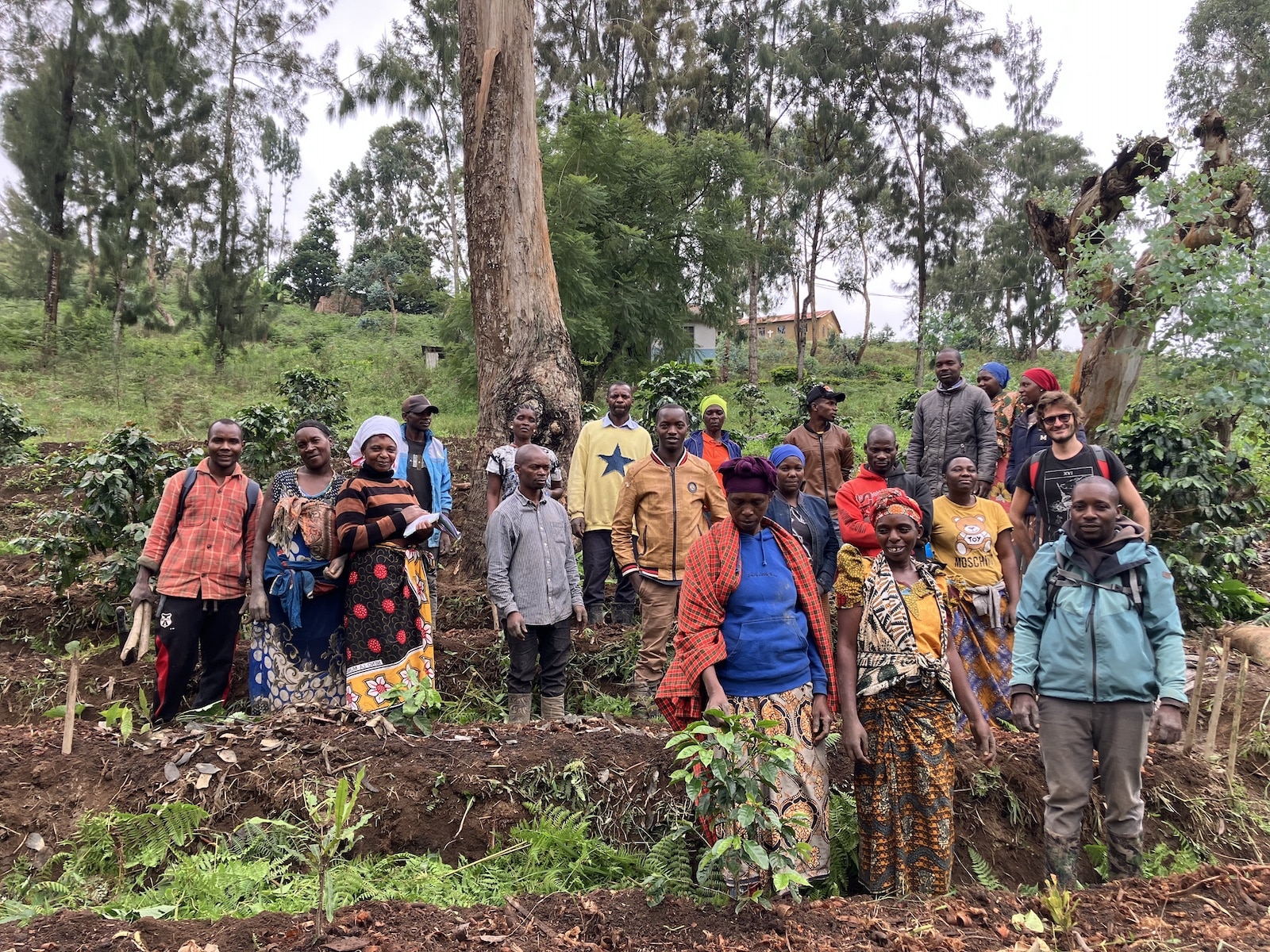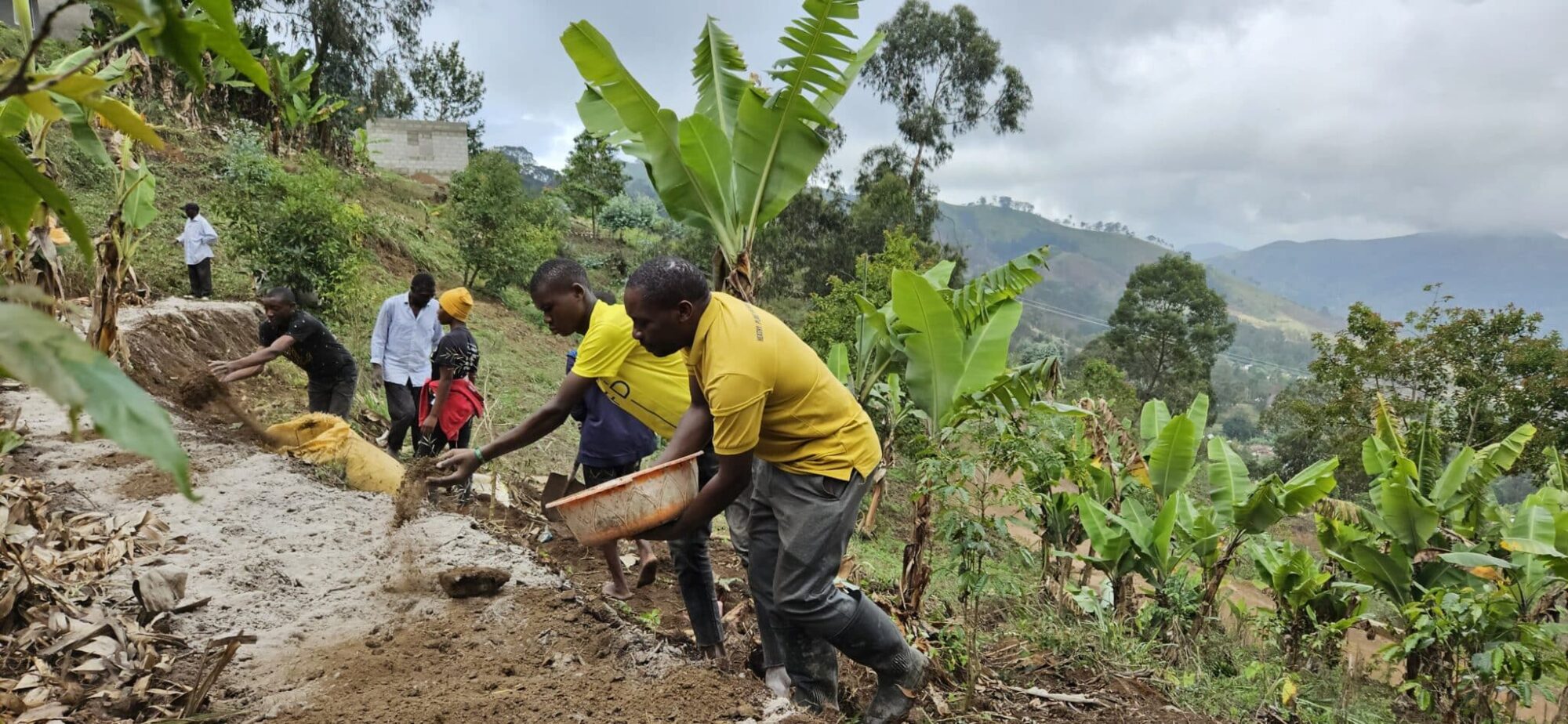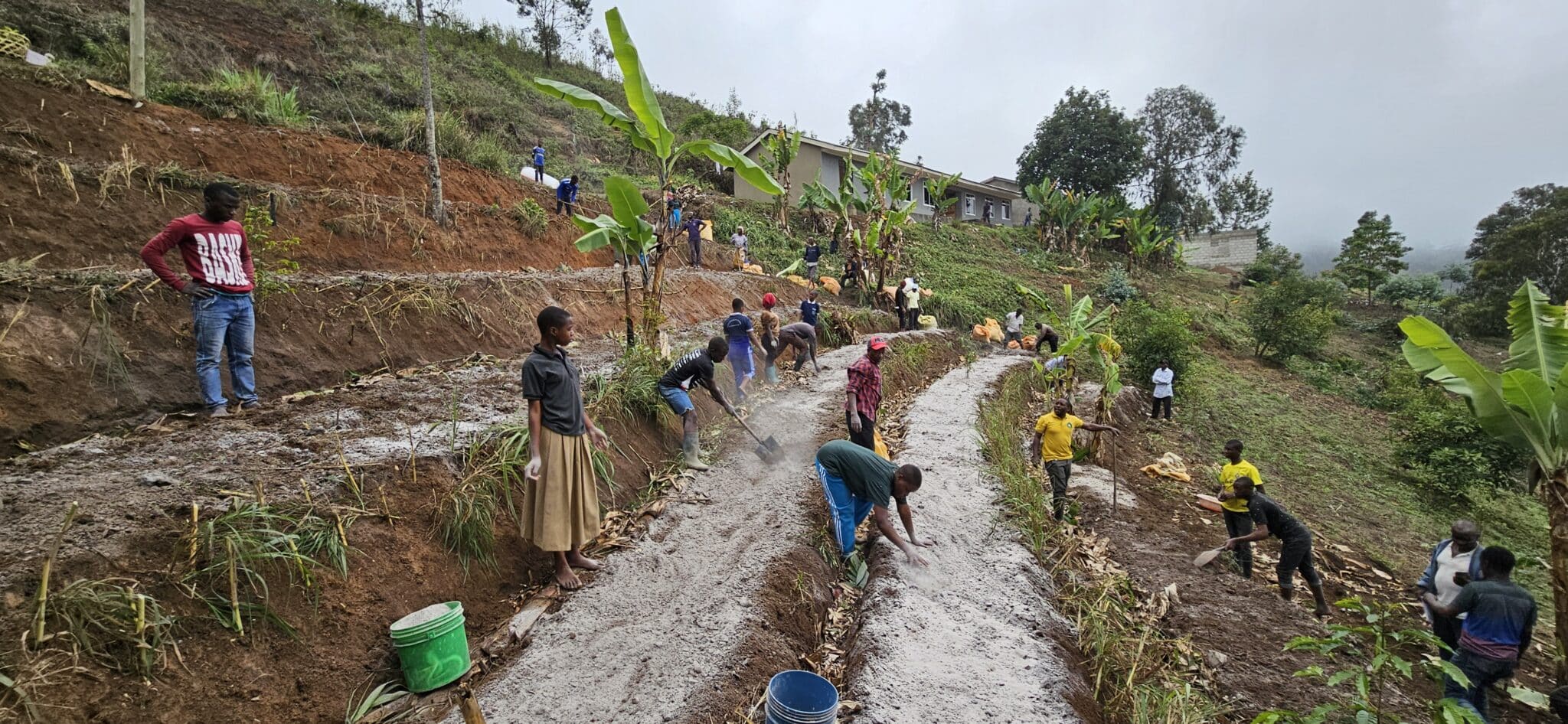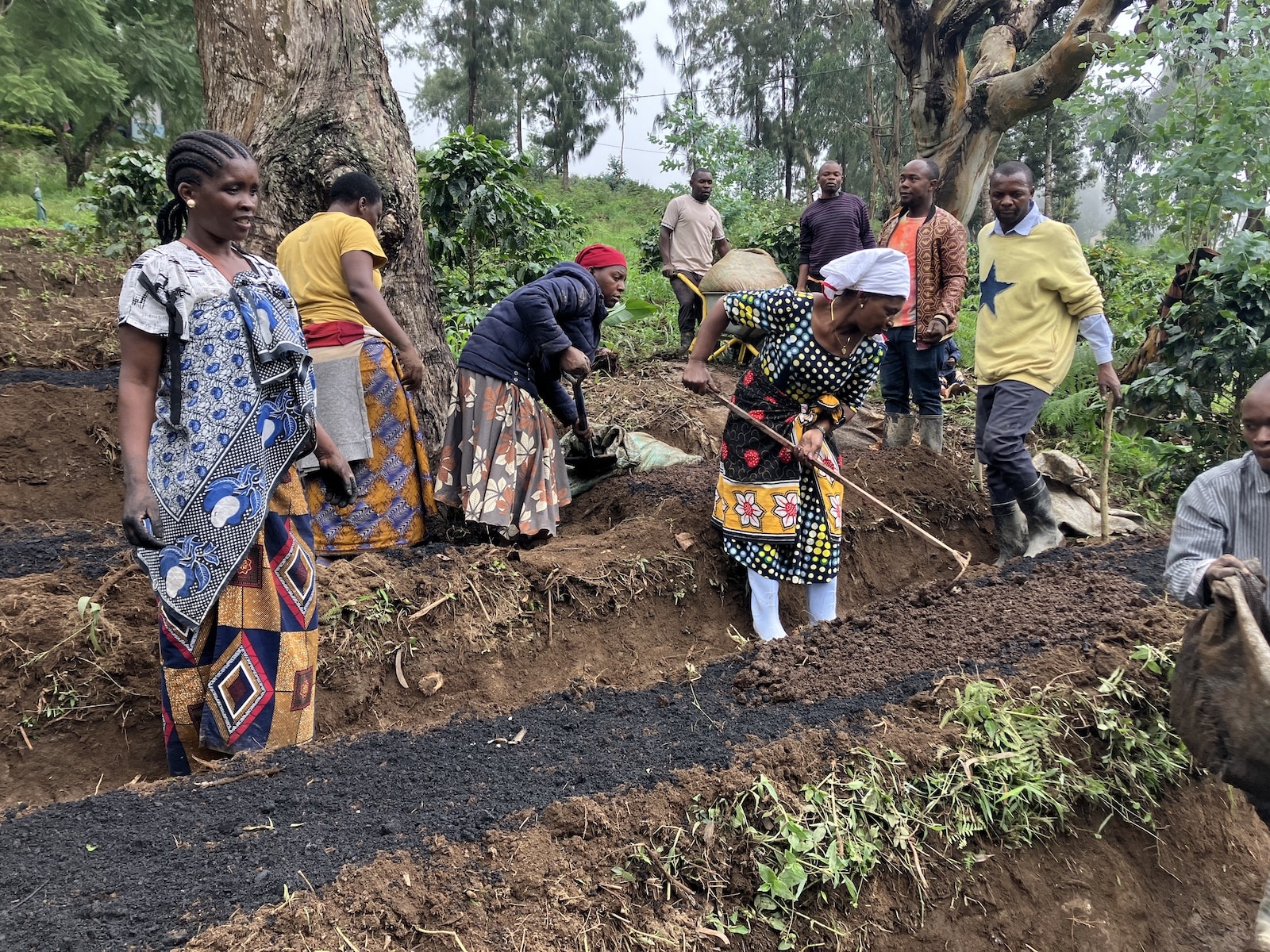APOPO is collaborating with the Mgeta Livelihood Development Foundation (MLDF) to introduce syntropic agroforestry in the Uluguru Mountains of Tanzania. This region, considered to be of significant ecological importance, faces serious environmental degradation due to deforestation and unsustainable farming practices, leading to severe soil erosion.
Mgeta, nestled in these mountains, one of Tanzania’s most vital watersheds, supplies water to millions of people downstream. The area’s steep terrain and intensive agriculture have resulted in diminishing soil fertility, increased dependence on chemical inputs, and a decline in water regulation. Safeguarding this ecosystem is essential for both local communities and national water security.

MLDF is deeply rooted in the community, working with over 800 smallholder farmers, schools, and local leaders. Its training center in Lauale plays a central role in promoting sustainable agriculture and improving rural livelihoods.
A Regenerative Approach Through Syntropic Farming
To tackle these environmental and livelihood challenges, APOPO is introducing syntropic agroforestry, a nature-based solution that restores land while supporting farmers. In 2024, initial training sessions with local farmers laid the foundation. Now, our partnership with MLDF is expanding to bring these practices to scale.
By integrating trees, shrubs, and crops in layered systems, syntropic agroforestry enhances soil health, restores biodiversity, and strengthens resilience to climate impacts. Continuous ground cover helps reduce erosion and improve water retention. The inclusion of high-value perennial crops, such as cardamom, cinnamon, macadamia, coffee, and cocoa, ensures long-term economic viability for farmers.

Measuring Impact and Scaling Innovation
A core pillar of this initiative is data-driven impact assessment. APOPO, as a lead implementation partner, contributes agroforestry expertise and project coordination. Our collaboration with FarmTree, specializing in impact assessment tools, allows us to track improvements in yields, carbon sequestration, and soil health.
FarmTree’s tools help build impact models for demonstration plots and enable local teams to gather real-time data. These insights will guide implementation and strategy adjustments for greater results.

Beyond agroforestry implementation, APOPO is helping strengthen MLDF’s operational capacity, ensuring they can manage projects effectively and assess outcomes with confidence. This partnership reflects APOPO’s broader mission to establish an innovation accelerator for syntropic agroforestry, promoting shared learning through the Syntropic Agroforestry Community of Practice.
Together, we are working toward a thriving, resilient agricultural landscape in Mgeta, benefiting both people and the environment.
Subscribe to the HeroTREEs newsletter, click here learn more, connect, and contribute to sustainable, climate-resilient agriculture.
This collaboration receives generous support from Land Vorarlberg.


